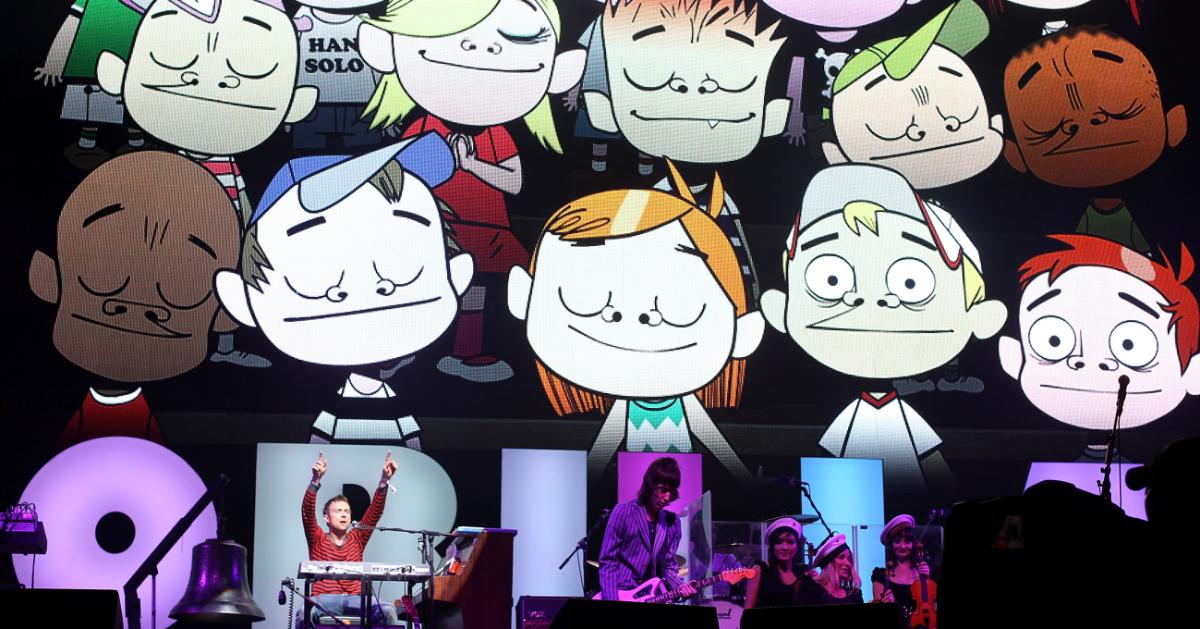Gorillaz Deliver Quirky Cultural Criticisms on "Cracker Island"
Published Feb. 23 2023, 4:40 p.m. ET

Coming into 2023 hot with a star-studded list of features on their new album, Gorillaz still knows how to wow fans just as they did when they burst onto the scene in the late 1990s. Damon Albarn's virtual band has managed to tap some very real collaborators for the new album "Cracker Island" including Stevie Nicks, Tame Impala, Bad Bunny, and Thundercat. It's precisely his song with Thundercat, which also is the title track of the album it shares its name with, that we're here to discuss.
With that being said, what is the meaning of "Cracker Island," Gorillaz's collaboration with Thundercat? Keep reading for a breakdown of the lyrics.

What is the meaning of "Cracker Island"?
Aside from hit songs, Gorillaz is a narrative project that extends into visuals uploaded to the band's YouTube. Through these clips, fans get a glimpse into the virtual world that the Gorillaz members inhabit, and also gain context into the meaning of their music. Naturally, "Cracker Island" doesn't deviate from that tried and true formula one bit.
In a video titled "It turned out the neighbors were a cult too. What are the chances?" Jamie Hewlett sets the stage for the entirety of the "Cracker Island" album and what Gorillaz will be facing: cultists. An entire neighborhood of them. Metaphorically, the song seems to be a reference to "stan" culture, unpacking how certain people get absorbed into pop culture and lose their sense of individuality, almost like what happens in a cult.
With the lyrics "On Cracker Island, it was born / To the collective of the dawn / They were planting seeds at night / To grow a made-up paradise," Damon metaphorically describes a fragile (cracker) society created by some type of higher power/shadow group. This could also be a metaphor for powerful players in the industry creating "industry plants," aka artists they hand-picked for fame, and promoting them heavily.
He then reflects that this "paradise" is "Where the truth was auto-tuned," possibly a comment on either the the music industry using computer enhancements on performers, distortion of the truth by media, or a combination of both. Nonetheless, he goes on with, "And its sadness, I consumed (Forever cult) / Into my formats everyday (Forever cult) / In the end, I had to pay."
Damon sings, "They taught themselves to be occult / They didn't know its many strategies." That first line is a play on words, sounding like "They taught themselves to be occult" as well as "They taught themselves to be a cult."
Joined by Thundercat, the two repeat the song's intro before summarizing that they're "like a ship between the tides / I held on, I survived." Seemingly a reference to how amidst the changing tides of the industry, they have remained true to themselves and their crafts.
We see another reprise of the aforementioned lines referencing the occult before the song concludes with one more run through the verse. To close the track out, we see Damon and Thundercat recognizing that "In the end, I had to pay (Forever Cult) / In the end, I'll have to pay (Forever Cult) / In the end, I'll be okay (Forever Cult) / Nothing more to say," seemingly coming to terms with the new circumstances of the music industry and how to exist within them.